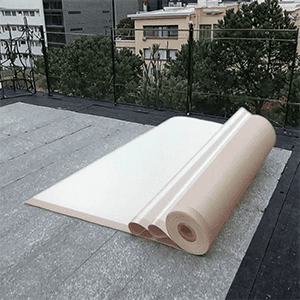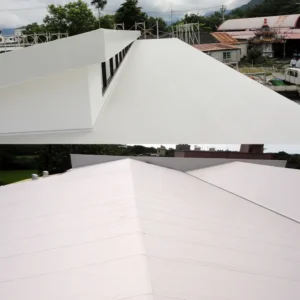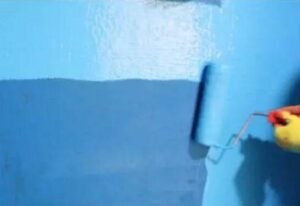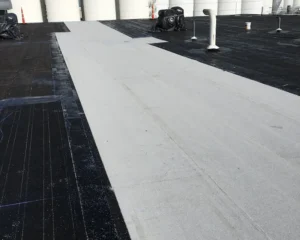What is the Best Membrane for Waterproofing?
The choice of waterproofing membrane comes down to specific needs, preferences, scoped challenges, and goals. Bituminous membranes look at ease of installation, affordability, effectiveness and duration while also competing against PVC membranes horizontally for flexibility in extreme conditions, weather, UV rays and exposure to sunlight.
Bituminous Membranes
When looking for a waterproofing membranes, bituminous options have been proven to be good enough for many severed applications. Their high resistance to waterproofing and the ability to withstand weather conditions and UV rays make them suitable for roofing and applications below the ground. On top of that they are bit cheaper compared other membranes making the most preferred option.
PVC Membranes
People often lean towards PVC membranes because of their low maintenance and high durability nature. Flexibility is maintained even during extreme harmful chemical conditions. Because of their elasticity and low weight, they are great options for commercial roofing.
TPO Membranes
For building owners looking for low maintenance costs, TPO membranes are the best options. Apart from demanding lower costs, they also protect from high concentration UV radiation and harsh weather, thus prolonging life span. Less frequent repairs mean greater cost efficiency and advantages for TPO membranes overall.
EPDM Membranes
Customers who deal with extreme weather conditions, particularly with rapid temperature changes, have another bright siding dealing with wrapped portions for thaw cycle peak periods, EPDM stretched during the blunt feeling portion.
Liquid Waterproofing Membranes
When dealing with complex shapes or surfaces, liquid waterproofing membranes offer great versatility. They form a seamless layer that adapts to any surface, ensuring no gaps remain. Customers find these membranes useful for balconies, terraces, and areas requiring detailed waterproofing.
Final Thoughts
From the customer’s point of view, the best waterproofing membrane depends on the specific project demands. Bituminous membranes are cost-effective and durable, PVC and TPO offer chemical and UV resistance with easy installation, EPDM provides flexibility and longevity, and liquid membranes give seamless protection on tricky surfaces. Understanding these options helps customers make confident decisions and protect their investments effectively.
Contact Us
For more information or to inquire about our waterproof floor paint solutions, feel free to get in touch with us. We’re here to help!
- Phone: +86 138 6365 6701
- Email: Huafengwaterproof@gmail.com
- WhatsApp: +86 138 6365 6701
We look forward to assisting you with all your waterproofing needs!









